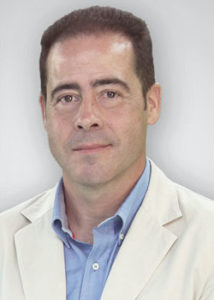
Ovidio Peñalver, Health psychologist and psychotherapist
Managing partner, ISAVIA Consultores (SPAIN)
Living to tell the tale
Before I delve into the various ways this COVID-19 pandemic has affected the world and all of us, let me give you an idea of what it is like to go through a storm and be able to live to tell the tale. I am a COVID-19 survivor. Meaning, I was afflicted with the deadly disease and thanks to the care and treatment that I received plus a lot of luck, I am here, alive and well, to briefly unveil what I went through:
Didn’t know I had it
To be frank, I spent the first week with COVID-19, but without knowing that I had it. I spent a week at home (with high fever, as well as with strong shaking and a loss of the senses of smell and taste). I thought that I just had a cold, which was stronger than usual. Then, when it would not subside, I was admitted to a hospital for another week with respiratory problems (I had bilateral pneumonia), with 12 medications a day (anti-retrovirals and strong antibiotics that gave me a bout of diarrhoea for four days, making me lose around four kilos).
Fully fit and fine
Fortunately, I did not have to go to the Intensive Care Unit with respiratory failure. And in time, I got discharged, which was around a little more than a month ago, after which I spent another two weeks isolated in my house. Now I am fully fit and fine and without any symptoms.
Virus will help me change for the better
To sum up, I have been able to think a lot. I also went through a lot of emotions (a lot of fear, for example, in addition to confusion, anger, but also gratitude and hope) and, above all, I was able to reaffirm my values. Hopefully this will help me to change personally and socially for the better.
Workload plus stress increase
Our life, on both a personal and professional level, has radically changed during this crisis. The workload for the health personnel, truckers, law enforcement officers, farmers and other affected groups has increased greatly. And already, this group is displaying signs of stress (not only due to the heavy workload, but also due to the fear of the risk of contagion). The health personnel, in addition, have lived with death closely, and with the trauma that this involves.
No rites of mourning
The saddest part is that relatives have not been able to say goodbye to their loved ones. This lack of “rites” of mourning will have medium and long-term psychological consequences. The vast majority of the population has been confined to their homes for more than 50 (at the time of writing this) days, working from home for those who have not lost their jobs.
Negative and positive aspects
This intensity of relationship with the rest of the family can have very beneficial aspects (children who are with their parents playing, strengthening relationships) or very negative (being alone or being cooped up with those they have a bad relationship) issues too.
Changes galore
I think this crisis will change our ways of relating in the short and medium term, for example: not shaking, hugging or kissing people outside our immediate family.
Today, I refuse to get too close to others in crowded spaces for fear that someone may cough near us. Over and above all of this is our increased hand hygiene in public places, which is bordering on the compulsive.
Unemployment, social unrest
Professionally and financially we will have a lot of unemployment and families that will need social assistance; social unrest will increase (robberies, violence) and I think there will be a lot of political tension.
Need to prepare for future outbreaks
The main challenge is going to be how to make people become more aware of new ways of consuming (more responsibly) and our relationships with countries, cultures and nature (greater ecological awareness), in addition to preparing the health system for possible outbreaks in the medium term. Working from home without the need to physically go to work whenever possible would soon be the norm and we will also discover new ways to lead teams and also communicate effectively.
We should have acted much earlier
I think we should have taken notice earlier, taking the virus more seriously and starting confinement earlier, even if it was not a politically welcome move at the time. There are countries that have done better; I do not think it was the case in Spain (I refer to the figures we have).
Prevention, with an even stronger and more prepared health system, will help in the event of possible outbreaks or new pandemics.
(Ovidio is one of the greatest Spanish exponents in the training and development of managerial skills, especially in areas of leadership, communication and emotions. With an energetic style and from a humanistic and systemic approach, he seeks in his conferences and workshops to provoke reflection and action. He has been a director at international consulting firms such as Andersen and Ernst & Young, as well as Bankinter and Unión Fenosa.
He is the managing partner of ISAVIA Consultores. He has also co-authored several management books and is the author of Collective Emotions: the emotional intelligence of teams (Alienta Editorial). He is the outstanding member of Top Ten Speaker Spain, speaker at TEDx Gran Vía and regular collaborator in management programmes for DEUSTO and IDDI-UFV. Idealistic and nonconformist, he believes in more authentic leadership: this is his dream as well as his challenge.)

0 Comments